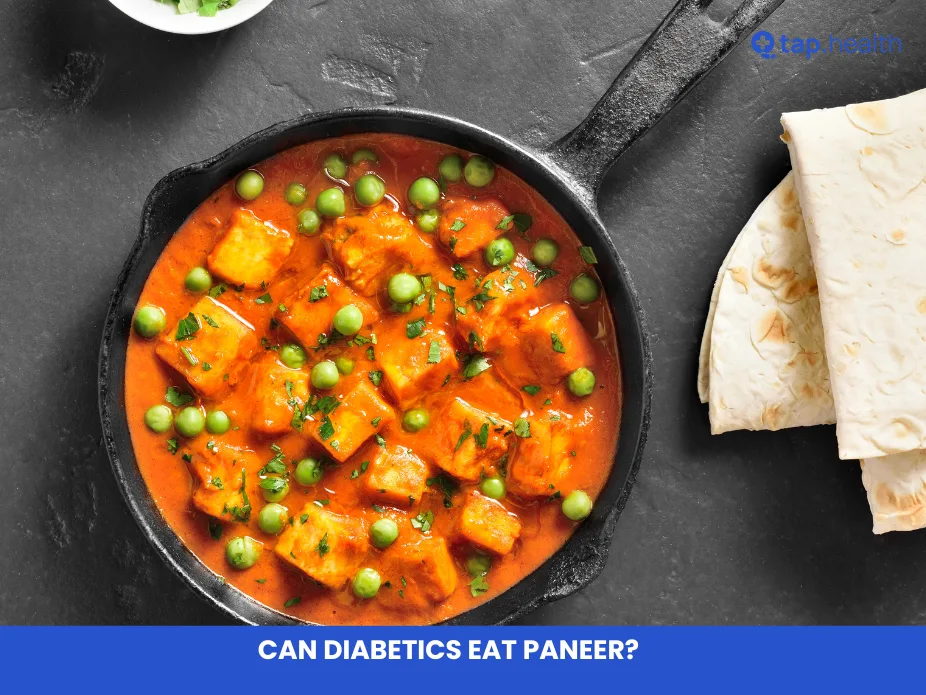If you’ve ever stood in the grocery store staring at a package of chicken livers and thought, “Can I eat this with diabetes?”—you’re not alone. Organ meats like chicken liver often get a bad rap or are shrouded in mystery. Some people swear by them for energy and nutrition; others avoid them like the plague because of cholesterol fears.
So, what’s the truth?
Yes—chicken liver can be good for diabetics… but with important caveats.
Unlike sugary snacks or white bread, chicken liver is low in carbohydrates and packed with high-quality protein, iron, and essential vitamins. That makes it naturally friendly to blood sugar control. However, it’s also high in cholesterol and vitamin A, which means it shouldn’t be eaten every day or in large amounts—especially if you have other health conditions like heart disease or kidney issues.
In this guide, we’ll break down everything you need to know:
- What’s in chicken liver nutritionally
- How it affects blood sugar
- Whether the cholesterol is a real concern
- How much is safe to eat
- Delicious, diabetes-friendly ways to prepare it
We’ve pulled insights from trusted sources like the American Diabetes Association (ADA), Mayo Clinic, Harvard T.H. Chan School of Public Health, and the National Institutes of Health (NIH) to give you clear, science-backed answers—no fluff, no jargon.
Let’s get to the heart (or liver!) of the matter.
Read this: Is Roasted Chicken Good for Diabetics?
What Is Chicken Liver, and Why Do People Eat It?
Chicken liver is the liver of a chicken—an organ meat, also called “offal.” While it might sound unusual to some, it’s a traditional food in many cultures (think pâté in France, chopped liver in Jewish cuisine, or stir-fried liver in Asian dishes).
People eat it because it’s one of the most nutrient-dense foods on the planet. Gram for gram, chicken liver contains more vitamins and minerals than most muscle meats like chicken breast or steak.
But just because it’s nutritious doesn’t automatically make it perfect for everyone—especially those managing diabetes.
Nutritional Profile of Chicken Liver: A Diabetic’s Breakdown
Let’s look at what’s actually in 3 ounces (about 85 grams) of cooked chicken liver, according to the USDA FoodData Central:
- Calories: 116
- Protein: 17 grams
- Fat: 4.5 grams (1.5g saturated)
- Carbohydrates: 0 grams
- Fiber: 0g
- Sugar: 0g
- Cholesterol: 396 mg (that’s over 130% of the old daily limit—but more on that later)
- Vitamin A: 7,300 mcg (over 800% of the daily value!)
- Iron: 9 mg (50% DV)
- Vitamin B12: 12 mcg (500% DV)
- Folate (B9): 240 mcg (60% DV)
- Selenium, Zinc, Copper: All in high amounts
Why This Matters for Diabetics:
- Zero carbs = no blood sugar spike.
- High protein = helps you feel full, supports muscle health, and stabilizes glucose.
- Rich in B vitamins = supports nerve health (important, since diabetes can cause neuropathy).
- Iron and folate = help prevent anemia, which is more common in people with type 2 diabetes.
So nutritionally, chicken liver checks many boxes for a diabetes-friendly food—except for two big concerns: cholesterol and vitamin A.
Does Chicken Liver Raise Blood Sugar?
No—it doesn’t.
Because chicken liver contains zero carbohydrates, it has no direct impact on blood sugar levels. When you eat it, your body doesn’t need to produce insulin to process sugars or starches.
In fact, high-protein, low-carb foods like chicken liver can help stabilize blood sugar when eaten as part of a balanced meal. Protein slows digestion and prevents the rapid spikes and crashes that come from eating refined carbs.
Real-life tip: Pair chicken liver with non-starchy vegetables (like spinach, broccoli, or zucchini) for a complete, blood-sugar-friendly meal.
This makes chicken liver a smart choice for people following low-carb or ketogenic diets for diabetes management—as long as other health factors are considered.
Is the High Cholesterol in Chicken Liver Dangerous for Diabetics?
This is the #1 concern—and it’s complicated.
Chicken liver contains about 396 mg of cholesterol per 3-ounce serving. For decades, health guidelines warned people to limit dietary cholesterol to 300 mg per day. But in recent years, major health organizations have updated their stance.
What Experts Say Now:
- The 2020–2025 Dietary Guidelines for Americans no longer set a specific daily limit for dietary cholesterol.
- The American Heart Association (AHA) says that for most people, dietary cholesterol has less impact on blood cholesterol than saturated and trans fats.
- However, people with diabetes are an exception. According to the ADA and AHA, diabetics are at higher risk for heart disease, so they should still be cautious with high-cholesterol foods.
The Bottom Line:
- If you have well-controlled diabetes and healthy cholesterol levels, eating chicken liver once a week is likely safe.
- If you have high LDL (“bad”) cholesterol, heart disease, or fatty liver disease, talk to your doctor before adding liver to your diet.
- Don’t fry it in butter or bacon fat—that adds saturated fat, which does raise blood cholesterol more than dietary cholesterol alone.
Key Insight: It’s not just the liver—it’s how you cook it and what else you eat that day.
What About the Extremely High Vitamin A?
Chicken liver is one of the richest sources of preformed vitamin A (retinol) on the planet. While vitamin A supports vision, immunity, and skin health, too much can be toxic.
- The Tolerable Upper Intake Level (UL) for adults is 3,000 mcg of preformed vitamin A per day.
- Just 3 ounces of chicken liver delivers over 7,000 mcg—more than double the safe limit.
Risks of Too Much Vitamin A:
- Nausea, dizziness, headaches
- Liver damage (ironic, right?)
- Bone pain and increased fracture risk
- Birth defects (a serious concern for pregnant women)
What This Means for Diabetics:
- Don’t eat chicken liver daily. Once or twice a month is plenty.
- If you take multivitamins or supplements that contain vitamin A, check the dose—many already provide 100% of your daily needs.
- Pregnant women with gestational diabetes should avoid chicken liver entirely due to birth defect risks.
Good news: Vitamin A toxicity only comes from preformed vitamin A (found in animal products like liver). Plant-based vitamin A (beta-carotene in carrots, sweet potatoes) is safe in large amounts because your body converts only what it needs.
Can Chicken Liver Help with Diabetes Complications?
Surprisingly, yes—in specific ways.
1. Prevents Anemia
People with type 2 diabetes are more prone to iron-deficiency anemia due to chronic inflammation or kidney issues. Chicken liver is one of the best sources of heme iron, which your body absorbs easily.
2. Supports Nerve Health
Diabetic neuropathy (nerve damage) affects up to 50% of people with diabetes. Chicken liver is loaded with vitamin B12 and folate, both critical for nerve function and repair.
3. Boosts Energy
Fatigue is common in diabetes. The iron, B12, and protein in liver help fight tiredness by supporting red blood cell production and metabolism.
However, these benefits only apply if you eat liver in moderation. Overdoing it negates the advantages.
How Often Can a Diabetic Eat Chicken Liver?
Recommendation: 1–2 times per month, max.
Here’s why:
- Cholesterol and vitamin A build up in your system over time.
- Even if your blood work looks fine now, regular high intake increases long-term risks.
- Variety is key in a diabetic diet—don’t rely on one superfood.
If you love liver, consider rotating it with other nutrient-dense proteins like:
- Fatty fish (salmon, mackerel – rich in omega-3s)
- Lean poultry
- Eggs (also high in nutrients but lower in vitamin A)
- Legumes (for plant-based iron and fiber)
Best Ways to Cook Chicken Liver for Diabetics
How you prepare chicken liver matters just as much as how often you eat it.
✅ Do:
- Sauté in olive oil or avocado oil (healthy fats, no trans fats)
- Season with garlic, onion, thyme, or rosemary (adds flavor without sugar or salt)
- Pair with fiber-rich veggies like sautéed spinach, kale, or roasted Brussels sprouts
- Rinse and soak livers in milk or lemon water for 30 minutes before cooking to reduce bitterness (optional but helpful)
❌ Don’t:
- Fry in butter, bacon grease, or lard (adds saturated fat)
- Smother in sugary sauces or gravy
- Serve with white rice, mashed potatoes, or bread (adds unnecessary carbs)
- Overcook—it becomes tough and rubbery. Cook just until no longer pink inside.
Simple Diabetic-Friendly Recipe Idea:
Garlic-Herb Chicken Liver with Greens
- Soak 8 oz chicken livers in cold water + 1 tbsp lemon juice for 20 min. Pat dry.
- Heat 1 tbsp olive oil in a pan. Add 2 minced garlic cloves, sauté 30 sec.
- Add livers, season with salt, pepper, and thyme. Cook 3–4 min per side.
- Toss in 2 cups fresh spinach until wilted. Serve immediately.
Total carbs: <3g. Protein: ~25g. Perfect for blood sugar control.
Are There Any Diabetics Who Should Avoid Chicken Liver Completely?
Yes—certain groups should skip it or get doctor approval first:
1. People with Kidney Disease
Diabetes is a leading cause of chronic kidney disease (CKD). Liver is high in purines, which break down into uric acid and can stress damaged kidneys. It’s also very high in protein, which may need to be limited in advanced CKD.
2. Those with High Cholesterol or Heart Disease
If your LDL is over 100 mg/dL or you’ve had a heart attack/stroke, your doctor may advise avoiding organ meats altogether.
3. Pregnant Women (Including Those with Gestational Diabetes)
As mentioned, excess vitamin A can cause serious birth defects. Avoid liver during pregnancy.
4. People on Blood Thinners (Like Warfarin)
Liver is high in vitamin K, which can interfere with blood-thinning medications. Consistency is key—if you eat liver, do it rarely and inform your doctor.
Always talk to your healthcare provider or a registered dietitian before making big changes to your diet, especially with chronic conditions.
Chicken Liver vs. Other Organ Meats: Which Is Best for Diabetics?
Not all organ meats are equal. Here’s how chicken liver compares:
| Chicken Liver | 0g | High | Very High | Extremely High | Best balance of nutrients, but watch vitamin A |
| Beef Liver | 0g | Very High | High | Even Higher than chicken | More iron/B12, but higher vitamin A |
| Heart (Beef/Chicken) | 0g | High | Moderate | Low | Great source of CoQ10 (good for heart), lower risk |
| Kidney | 0g | High | Moderate | Low | High in selenium, but strong flavor |
Verdict: Chicken liver is a good middle ground—nutrient-rich but slightly lower in vitamin A than beef liver. Still, moderation is key for all organ meats.
Common Myths About Chicken Liver and Diabetes
Let’s clear up some confusion:
Myth 1: “Liver is full of toxins because it filters them.”
Truth: The liver processes toxins—it doesn’t store them. In healthy animals, liver is safe to eat. Always buy from reputable sources (organic or pasture-raised if possible).
Myth 2: “All cholesterol is bad for diabetics.”
Truth: Dietary cholesterol isn’t the main driver of heart disease. Saturated fats and refined carbs are bigger culprits. But because diabetics are high-risk, caution is still wise.
Myth 3: “If it’s natural, you can eat as much as you want.”
Truth: Even healthy foods can be harmful in excess. Nutrient density works both ways—too much of a good thing becomes a problem.
Real-Life Scenario
Consider Raj, a diabetic patient looking to increase his protein intake without raising his blood sugar. Including grilled or lightly sautéed chicken liver in his diet twice a week helps him meet protein needs, improve iron levels, and feel full longer, all without spiking glucose levels.
Expert Contribution
Nutritionists emphasize that chicken liver is excellent for diabetics due to its low carbohydrate content and high micronutrient density. However, it is also high in cholesterol, so people with cardiovascular concerns should consume it in moderation. Experts often suggest pairing it with fiber-rich vegetables to further slow digestion and control blood sugar.
Recommendations Grounded in Proven Research and Facts
- Moderation is key: 50–100 grams per serving, 2–3 times per week is sufficient.
- Cooking method matters: Grilling, steaming, or sautéing with minimal oil is preferred over deep frying.
- Combine with fiber: Serve with leafy greens, beans, or whole grains to prevent rapid sugar absorption.
- Monitor cholesterol intake: People with high cholesterol or heart disease should limit consumption.
- Include as part of a balanced diet: Chicken liver is most beneficial when integrated with other lean proteins, whole grains, and vegetables.
Final Verdict: Should Diabetics Eat Chicken Liver?
Yes—but sparingly and smartly.
Chicken liver is a low-carb, high-protein, nutrient powerhouse that won’t raise your blood sugar. It can help fight anemia, support nerve health, and boost energy—common concerns in diabetes.
However, its extremely high vitamin A and cholesterol content mean it should be treated as an occasional food, not a staple.
Think of it like dark chocolate or nuts: incredibly healthy in small doses, but risky if overeaten.
Managing Diabetes with Chicken Liver: How Tap Health Can Guide You
Tap Health helps you take the guesswork out of managing diabetes and nutrition by offering personalized insights:
- Track your glucose response to meals containing protein-rich foods like chicken liver.
- Monitor your overall nutrient intake to balance cholesterol, fats, and carbs effectively.
- Get smart meal suggestions that fit your glucose trends and dietary preferences.
- Access expert nutrition guidance for customized diet plans — including protein sources that support stable blood sugar.
With Tap Health, you can enjoy foods like chicken liver confidently and responsibly, backed by real-time data and expert support tailored to your health needs.
Frequently Asked Questions (FAQ) on Is Chicken Liver Good for Diabetics?
Is chicken liver high in sugar?
No. Chicken liver contains 0 grams of sugar and 0 grams of carbohydrates, so it won’t raise blood sugar levels.
Can type 2 diabetics eat chicken liver?
Yes, in moderation. It’s high in protein and nutrients but also high in cholesterol and vitamin A, so limit intake to 1–2 times per month.
Does chicken liver lower blood sugar?
Not directly. But because it’s high in protein and has no carbs, it helps prevent blood sugar spikes and keeps you full longer, which supports overall glucose control.
Is chicken liver good for diabetic neuropathy?
Yes—thanks to its high levels of vitamin B12 and folate, which support nerve health and may help reduce neuropathy symptoms.
How much chicken liver can a diabetic eat?
Stick to 3–4 ounces (about the size of a deck of cards) once or twice a month. Avoid eating it weekly or daily.
Is chicken liver bad for cholesterol?
It is high in dietary cholesterol, but recent research shows dietary cholesterol has less impact on blood cholesterol than saturated fat. However, diabetics should still be cautious due to higher heart disease risk.
Can I eat chicken liver if I have fatty liver disease?
Probably not. People with non-alcoholic fatty liver disease (NAFLD)—common in type 2 diabetes—should avoid organ meats due to high vitamin A and purine content, which may worsen liver stress.
What’s healthier: chicken liver or chicken breast?
Chicken breast is lower in cholesterol and vitamin A, making it safer for daily eating. Chicken liver is more nutrient-dense but should be occasional. Both are good—just serve different purposes.
Does cooking method affect chicken liver’s health benefits?
Yes. Frying in unhealthy fats adds saturated fat, which is worse for heart health. Sautéing in olive oil or grilling preserves benefits without adding harmful fats.
Are frozen chicken livers as nutritious as fresh?
Yes. Freezing preserves nutrients well. Just thaw in the fridge and cook within 1–2 days.
Can chicken liver cause gout?
Possibly. It’s high in purines, which break down into uric acid. If you have gout or high uric acid levels, avoid liver and other organ meats.
Is it safe to eat chicken liver every day?
No. Daily consumption can lead to vitamin A toxicity and excessive cholesterol intake. Limit to once or twice a month.
Is chicken liver high in sugar?
No, chicken liver is not high in sugar. In fact, it contains virtually no carbohydrates or sugar. Chicken liver is rich in protein, iron, vitamin A, and B vitamins like B12 and folate, making it a nutrient-dense food.
Because it’s low in sugar and carbs, chicken liver can be a good choice for diabetics or anyone managing blood sugar levels. However, it should be eaten in moderation, as it’s also high in cholesterol and vitamin A, which can be harmful in excessive amounts.



